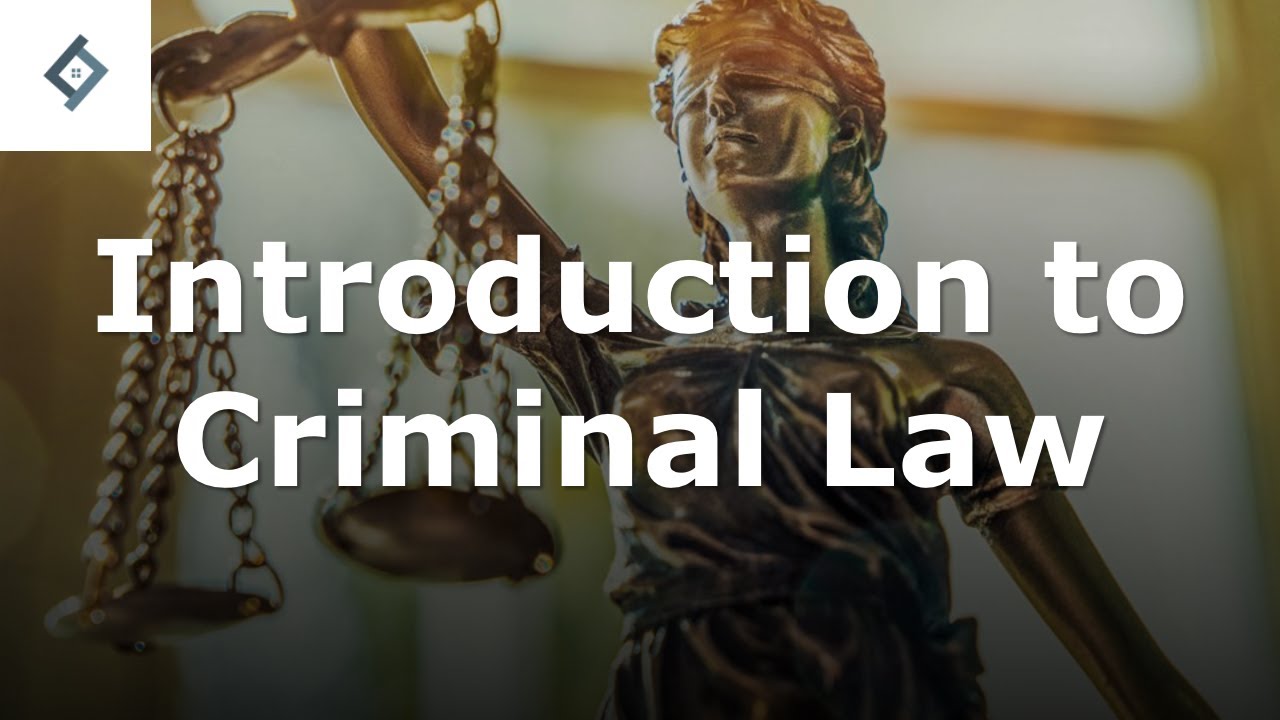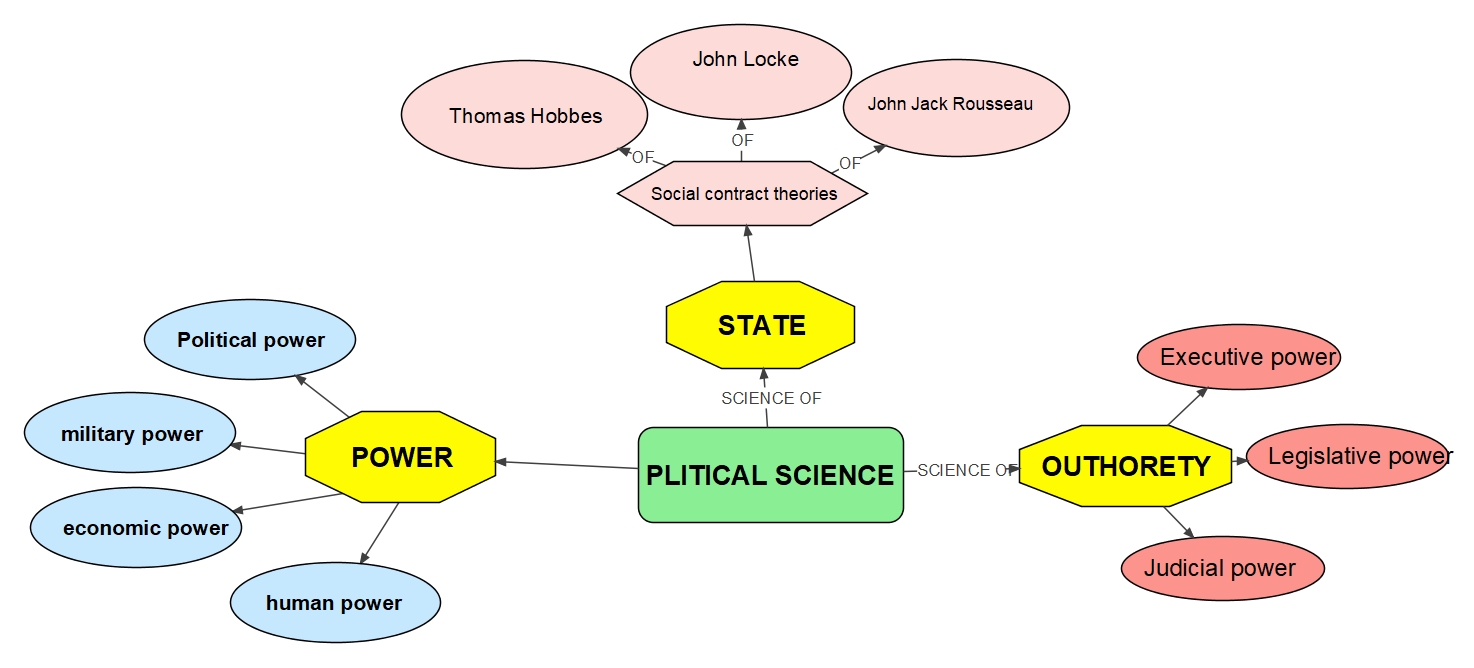
Ministry of Higher Education and Scientific
Research
University of Echahid Hamma Lakhdar
At El-Oued
Province
Faculty of Law and Political Science
Department of Public Law.
*2nd year Licence (Bachelor) Common Core.
Option: INTRODUCTION TO CRIMINAL LAW.
Ref : Algerian criminal Law.
A- Course Description: وصف المقرر
Criminal law is a key part of our Algerian legal system, given its importance in ensuring societal balance and protecting its human and material infrastructure by defining serious criminal acts and imposing appropriate punishment.
يُعتبر التشريع الجنائي جزءًا رئيسيا من نظامنا القانوني الجزائري، نظرا لأهميته في ضمان توازن المجتمع وحماية بنيته البشرية والمادية، من خلال تحديد الأفعال المجرمة الخطيرة وإيقاع العقاب المناسب عليها.
The crucial roles of this law are to protect individuals and property from assault and to establish justice.
وتتمثل ادوار هذا القانون الحاسمة في حماية الأفراد والممتلكات من الاعتداء وإرساء العدالة.
At its core, criminal law protects society, strives to ensure safety, tranquility, and public order, and sets boundaries for acceptable behavior.
في جوهره، يحمي القانون الجنائي المجتمع ويسعى جاهدًا لضمان السلامة والسكينة والنظام العام، ويضع حدودًا للسلوك المقبول.
In the Algerian legal system, this law plays a pivotal role in preventing and, where necessary, deterring violent behavior, as well as maintaining order and security throughout the country.
وفي النظام القانوني الجزائري، يقوم هذا القانون بدور محوري يتمثل في الوقاية من السلوكيات العنيفة و ردعها أن تطلب الأمر وكذلك الحفاظ على النظام والأمن في جميع أنحاء البلاد.
The study of criminal law requires an understanding of the principles underlying our criminal justice system, which include the protection of constitutional rights and the pursuit of justice.
تتطلب دراسة القانون الجنائي فهم المبادئ التي يقوم عليها نظام العدالة الجنائية لدينا، والتي تشمل حماية الحقوق الدستورية والسعي إلى تحقيق العدالة.
Here, we will explore the principles and concepts that shape the Algerian legal system's approach to crime and justice.
A-1- Criminal Law Basics: أساسيات القانون الجنائي
This introductory course provides students with all the basic knowledge necessary to understand and comprehend the methods of practicing criminal law.
يمكن هذه المدخل التمهيدي الطالب من الاطلاع على جميع المعارف الأساسية اللازمة لفهم واستيعاب طرق ممارسة القانون الجنائي، وسيغطي البرنامج ما يلي:
The program will cover the following:
•What is criminal law?
• ما هية القانون الجنائي؟
•What are the sources of criminal law?
• ما هي مصادر القانون الجنائي؟
•What is the relevant legislation to criminal law practice?
• ما هي القوانين ذات الصلة بممارسة القانون الجنائي؟
•What are the differences between criminal and civil offences?
• ما هي أهم الميزات والفروق بين الجرائم الجنائية والدعاوى المدنية؟
•What are the types of criminal offences?
• ما هي أنواع الجرائم الجنائية؟
•How do you determine which court has jurisdiction over the crime?
• كيف تُحدد المحكمة المختصة بمحاكمة
المتهم؟
We will also cover key procedural issues in criminal procedure law, such as basic terminology and roles in the field of criminal law.
• ستتناول أيضًا مسائل إجرائية رئيسية في قانون الإجراءات الجزائية، مثل المصطلحات الأساسية والأدوار في مجال القانون الجنائي.
A-2- Main Principles of criminal law:
1- The principle of legality. مبدأ الشرعية
2- Prohibition of retroactivity. مبدأ عدم رجعية القانون الجنائي
3- The principle of humanism. مبدأ المعاملة الإنسانية
4- The principle of individual responsibility of natural persons.
مبدأ المسؤولية الجزائية الفردية للأشخاص الطبيعيين.
5- Principle of liability for fault. مبدأ المسؤولية عن الخطأ
6- The principle of substantive truth. مبدأ الحقيقة الموضوعية
7- No one can be prosecuted twice for the same thing.
مبدأ عدم جواز محاكمة الشخص لمرتين عن نفس الأفعال المجرمة.
8- The principle of the presumption of innocence.
مبدأ افتراض قرينة البراءة.
9- The principle of formality. مبدأ الشكلية
10- The principle of impeachment. مبدأ المساءلة
11- The principle of non-self-incrimination. مبدأ عدم قابلية تجريم الذات
12- Principle of orality and publicity of the trial. مبدأ الشفاهية والعلنية
B- Learning
Objectives:أهداف التعلم
By attending this course the student will:
· Acquire the basic skills that enable him to comprehend and understand the legal structure and engineering of criminal law.
· بمتابعة هذا الدرس سيتمكن الطالب من اكتساب المهارات الأساسية التي تُمكّنه من استيعاب وفهم البنية والهندسة القانونية للقانون الجنائي.
· Identify, analyze, and evaluate the components of the criminal justice system, including the Penal Code, the Code of Criminal Procedures, how the judicial police operate and manage crimes, and criminal policy in handling crimes, collecting evidence, and studying the legal methods governing how to deal with suspects and accused persons during the investigation stages and procedures for placing them in temporary detention until trial and issuing a ruling, and then returning them to society after conviction.
· تحديد وتحليل وتقييم مكونات نظام العدالة الجنائية بما في ذلك قانون العقوبات وقانون الإجراءات الجزائية وكيفية عمل وإدارة الشرطة القضائية والسياسة الجنائية في معالجة الجرائم وجمع الأدلة ودراسة الطرق القانونية الضابطة لكيفيات التعامل مع المشتبه فيهم والمتهمين خلال مراحل التحقيق وإجراءات الوضع رهن الحبس المؤقت حتى المحاكمة وصدور الحكم، ثم العودة إلى المجتمع بعد الإدانة.
· Learn how to put these skills into practice while preparing for lessons or theoretical or field applications (Virtual trials, investigation, inquiry, inspection (search), etc.) and being mentally and physically present for the related explanations.
· تعلم كيفية وضع هذه المهارات موضع التنفيذ أثناء التحضير للدروس أو التطبيقات النظرية أو الميدانية (المحاكمات الافتراضية، التحقيق، التحري، التفتيش.....) والحضور الذهني والفعلي للشروحات المتعلقة بها.
· Develop skills through applied experiential learning necessary for careers in criminal law and criminology, law enforcement, serious crime, court systems and prison administration.
· Analyze the nature of crime and criminal behavior and their impact on policies related to crime, society, and public safety.
· تحليل طبيعة الجريمة والسلوك الإجرامي وتأثيرهما على السياسات المتعلقة بالجريمة والمجتمع والسلامة العامة.
C- Format: أساليب التعلم والتدريس
A range of teaching and learning techniques will be used including:
سيتم استخدام مجموعة من أساليب التدريس والتعلم، بما في ذلك:
· Group discussions on topics including preparing and presenting criminal facts and behaviors and matching them with criminal.
· المناقشات الجماعية حول مواضيع تشمل إعداد وتقديم وقائع وسلوكيات إجرامية ومطابقة الأوصاف الجنائية عليها.
· Planning and developing an explanation for the admissibility of key evidence and cross-examination.
· تخطيط ووضع تفسير لمقبولية الأدلة الرئيسية والاستجواب المتبادل.
· Practice a series of exercises, noting the distribution of roles among the students (lawyer, judge, public prosecutor, victim, accused, witness, etc.).
· وضع سلسلة من التمارين مع ملاحظة توزيع الأدوار بين الطلبة (محام، قاضي، وكيل جمهورية، ضحية، متهم، شاهد....).
· Reading some punitive and procedural texts of the Criminal Code, analyzing and explaining them, and commenting on some judicial rulings, especially the rulings of the Supreme Court.
· قراءة بعض النصوص العقابية والإجرائية للقانون الجنائي والقيام بتحليلها و شرحها والتعليق على بعض الأحكام القضائية وخاصة أحكام المحكمة العليا.
D- Materials : المواد المعتمدة
All educational materials and digital resources will be placed on the university's distance learning website.
جميع المواد التعليمية و الدعامات الرقمية ستوضع على موقع التدريس عن بعد الخاص بالجامعة.
E- Prerequisite
Course : المعارف المسبقة
There are no course or lesson requirements that must be completed before enrolling in these lesson.
لا توجد أية متطلبات
لإجراء دورة أو تلقي دروس يجب إكمالها قبل التسجيل في هذا
الدرس.
F- Pre Course Work: الأعمال
التحضيرية لما قبل الدرس
Students are expected to familiarize themselves with the course content in advance by studying the Introduction to Criminal Law module in Arabic. They are also required to read the course content on the digital platform for distance learning for a reasonable period of time to gain a basic understanding of the content.
يُتوقع من الطالب التعرّف على محتويات الدرس مسبقا
من خلال دراسته لمقياس مدخل للقانون الجنائي باللغة العربية، كما يتطلب الأمر القراءة
المُسبقة للدرس الموضوع على الأرضية الرقمية للتدريس عن بعد لمدة معقولة تسمح
بالاطلاع على الخطوط العريضة للمضمون.
G-Timing : التوقيت
· Day 1 Tuesday : 9.00am – 5.00pm
·
Day 2 All Week days on the site: https://e-learning.univ-eloued.dz/.
H- Contact References مراجع الاتصال
E-Mail : tal_aio@yahoo.com
والله الموفق
- المعلم: taleb aiouadj

Course: English
Unit: horizontal
Course teacher :Dr.Mekki Hafidha
Course coefficient: 1
- المعلم: Dr. Hafidha Mekki

مصطلحات قانونية لطلبة السنة الثانية ليسانس السداسي الثاني
- المعلم: radia Zerguini

In this course the student will be able to
Give a definition of the most important terms of political science, and become able to deal with texts and translate them and giv
e general ideas
about them
يهدف مقياس رسم السياسات العامة و صنع القرار إلى تعريف الطالب بمفاهيم عملية رسم السياسات و كذا عملية صنع القرارات باعتبارها مخرجا أساسيا للنظم السياسية ، كما سيتمكن الطالب من معرفة نشأة و تطور حقل السياسات العامة إضافة إلى أهم خصائصها و كذا عناصرها و انواعها. كما سيتمكن ابطال من التعرف على أهم القواعد الرسمية و الغير رسميه التي تساهم في رسم و صياغة السياسات العامة ، ثم التعرف على أهم المراحل التي تمر بها السياسات العامة.
- المعلم: kheireddine abadi

المقياس عبارة على ترجمة لبعض التعاريف و المواد و المصطلحات القانونية من اللغة العربية الى اللغة الفرنسية
- المعلم: abdi khuireddine
- المعلم: abdi khuireddine

